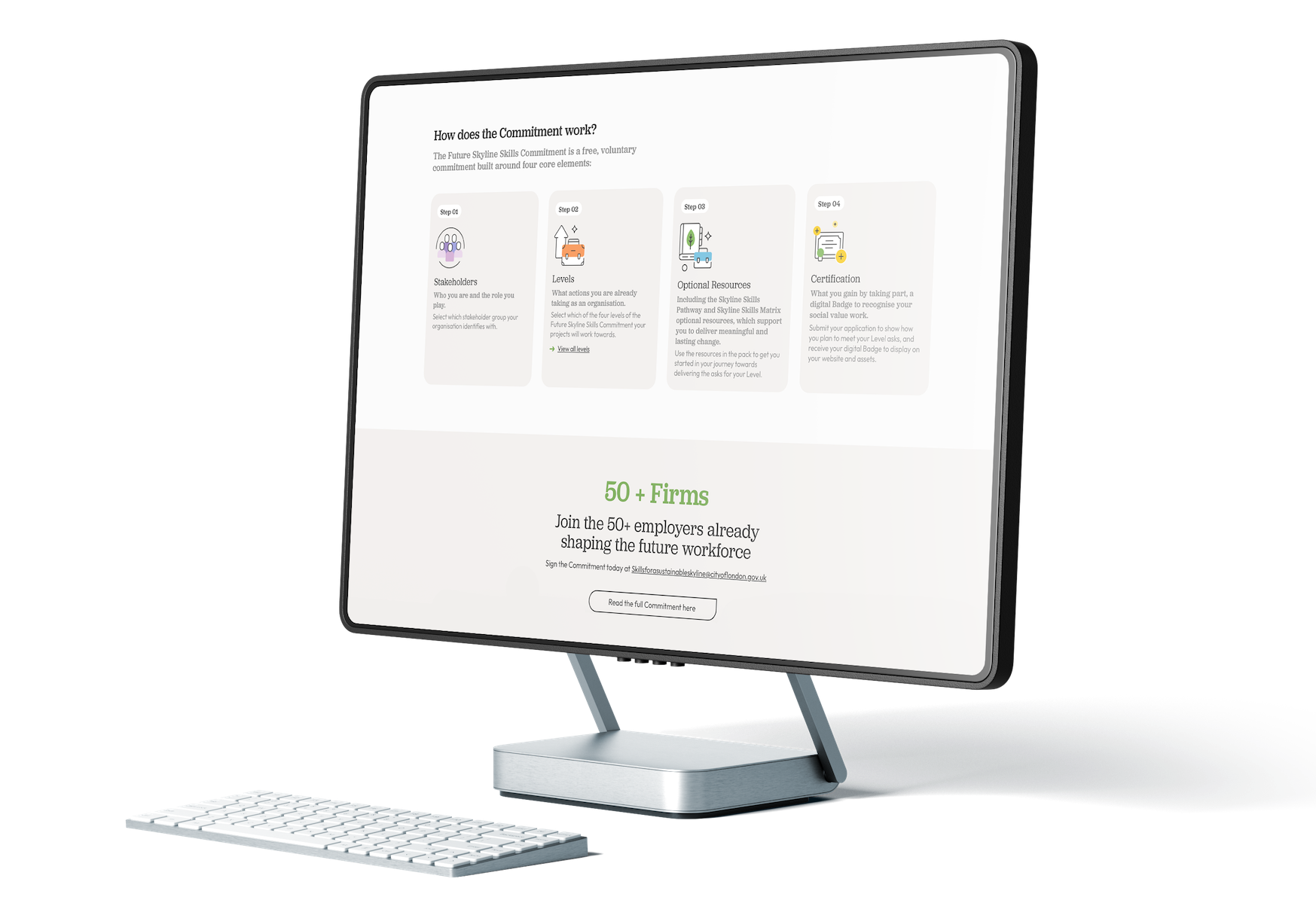The built environment includes all human-made structures and spaces, such as residential, commercial, industrial buildings, infrastructure, public spaces, transportation networks, and utilities.
These vary from person to person but, fundamentally, we mean the core skills needed to deliver action. These range from technical skills such as renewable energy procurement and assessing embodied carbon projects, to soft skills like advocating for sustainability throughout the supply chain and the key leadership skills needed to drive change and embed sustainability in organisations.

Over 26,000 extra construction workers are needed in Greater London by 2026.
The UK is anticipating that over 100,000 people will need to be recruited and upskilled to carry out the work required.
In London, buildings contribute 76% of greenhouse gas emissions. 95% of emissions over the next 30 years come from existing buildings.
By 2050, 10% of London’s jobs will be green, but the workforce is not growing fast enough to meet the demand for these roles.
Skyline Taskforce member and over 90% of industry respondents agree there is a major skills gap in green jobs for meeting net zero targets.